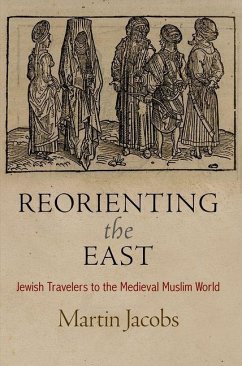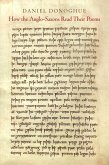Reorienting the East explores the Islamic world as it was encountered, envisioned, and elaborated by Jewish travelers from the Middle Ages to the early modern period. The first comprehensive investigation of Jewish travel writing from this era, this study engages with questions raised by postcolonial studies and contributes to the debate over the nature and history of Orientalism as defined by Edward Said.
Examining two dozen Hebrew and Judeo-Arabic travel accounts from the mid-twelfth to the early sixteenth centuries, Martin Jacobs asks whether Jewish travelers shared Western perceptions of the Islamic world with their Christian counterparts. Most Jews who detailed their journeys during this period hailed from Christian lands and many sailed to the Eastern Mediterranean aboard Christian-owned vessels. Yet Jacobs finds that their descriptions of the Near East subvert or reorient a decidedly Christian vision of the region. The accounts from the crusader era, in particular, are often critical of the Christian church and present glowing portraits of Muslim-Jewish relations. By contrast, some of the later travelers discussed in the book express condescending attitudes toward Islam, Muslims, and Near Eastern Jews. Placing shifting perspectives on the Muslim world in their historical, social, and literary contexts, Jacobs interprets these texts as mirrors of changing Jewish self-perceptions. As he argues, the travel accounts echo the various ways in which premodern Jews negotiated their mingled identities, which were neither exclusively Western nor entirely Eastern.
Hinweis: Dieser Artikel kann nur an eine deutsche Lieferadresse ausgeliefert werden.
Examining two dozen Hebrew and Judeo-Arabic travel accounts from the mid-twelfth to the early sixteenth centuries, Martin Jacobs asks whether Jewish travelers shared Western perceptions of the Islamic world with their Christian counterparts. Most Jews who detailed their journeys during this period hailed from Christian lands and many sailed to the Eastern Mediterranean aboard Christian-owned vessels. Yet Jacobs finds that their descriptions of the Near East subvert or reorient a decidedly Christian vision of the region. The accounts from the crusader era, in particular, are often critical of the Christian church and present glowing portraits of Muslim-Jewish relations. By contrast, some of the later travelers discussed in the book express condescending attitudes toward Islam, Muslims, and Near Eastern Jews. Placing shifting perspectives on the Muslim world in their historical, social, and literary contexts, Jacobs interprets these texts as mirrors of changing Jewish self-perceptions. As he argues, the travel accounts echo the various ways in which premodern Jews negotiated their mingled identities, which were neither exclusively Western nor entirely Eastern.
Dieser Download kann aus rechtlichen Gründen nur mit Rechnungsadresse in A, D ausgeliefert werden.
Hinweis: Dieser Artikel kann nur an eine deutsche Lieferadresse ausgeliefert werden.









